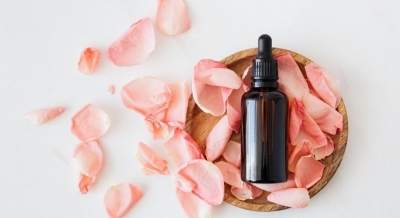New Delhi (IANSlife) The World Vegan month of November usually brings with itself an increased amount of dialogue and searches about Vegan lifestyle, sustainable living and clean beauty. Before pondering any further, it is important to understand what the Vegan lifestyle is and how it goes beyond the concept of consuming a plant-based diet.
Veganism essentially is a lifestyle that is driven by compassionate choices and an increased awareness of one’s actions on the world. Thus motivated by the two, a vegan individual usually carefully curates their day-to-day practices in a manner that does little to no- harm to the planet, the people and all of its inhabitants.
Beauty as industry has time and again been scrutinised for its effects on the consumers and the ecosystem – this can be during the manufacturing process or the effect it has on the consumer’s thought processes. Now, as the world moves towards adopting Global Sustainability Goals, committing to a world that works with the natural resources instead of against them – it is only fair for each individual to be curious about making the right choices to make their beauty bag as consciously curated as possible. With multiple brands coming up with new standards of vegan and sustainable beauty, many consumers are left confused and doubting the authenticity of these claims. So here is a quick guide that can help you make the right choices:
Vegan and cruelty free labels:
Keeping true to the traditional meaning of Vegan – any vegan beauty product means that it is completely plant based and has no animal ingredients or any of their by-products like honey, beeswax, dairy product etc. Similarly, cruelty-free as a label means that the ingredients or the final product did not test on animals or harm any animals during the production process. One way to test the authenticity is to check if these products are legally certified by PETA (People for the Ethical Treatment of Animals), or verified by Vegan organisations as The Vegan Society and others. Cruelty-free and vegan products are also generally categorized by having cleaner and gentler formulas as they are mostly deprived of harsh chemicals and solvents.
Ethical and natural ingredients:
It is equally important to invest in products that use ethically sourced and sustainably harvested ingredients. Since most vegan products tend to be plant derived it is of utmost value to ensure that while the source is nature, the impact of manufacturing is also minimal so that there is no harm done to the environment. Often the face scrubs used by us are most damaging not just to the face and to the marine life as well; thus opting for more natural ingredients rather than synthetic ones is quite beneficial. Some natural scrubbing ingredients are sugar, salt, coffee which are safe for the coral reefs and far gentler than synthetic scrubs.
Sustainable and ecofriendly packaging:
While the ingredients and formulation can be certified, it is also important to pay attention the quality, material and nature of the packaging in which the product is being stored. With an increase in clean-beauty standards, the consumption of such products has also increased, thus giving brands the opportunity to further develop their packaging in a manner that is sustainable and its increased quantity does not harm the environment. This could translate into using raw materials that are recycled and can be renewed or even introducing the concept of up-cycling the product packaging for decoration or storage purposes. Fore example, The Body Shop has recently launched a new line of vegan hair care and body butters; that are not only made of 95 per cent ingredients of natural origin but the packaging is made of recycled plastic that can further be recycled thus continuing the recycling system. Their makeup brushes also have wooden handles instead of plastic ones this adds to their classy appearance and use of ecofriendly material.
The above is a small snippet in a long list of things that can help contribute to a cleaner and more consciously lifestyle. Where demand increase, supply follows – as people begin to demand ethical, responsible production and products, more and more brands have begun to deliver. Household names such as The Body Shop have pioneered conversations on clean, green and sustainable beauty for decades – thus making them a frontrunner for several old time vegan people.

